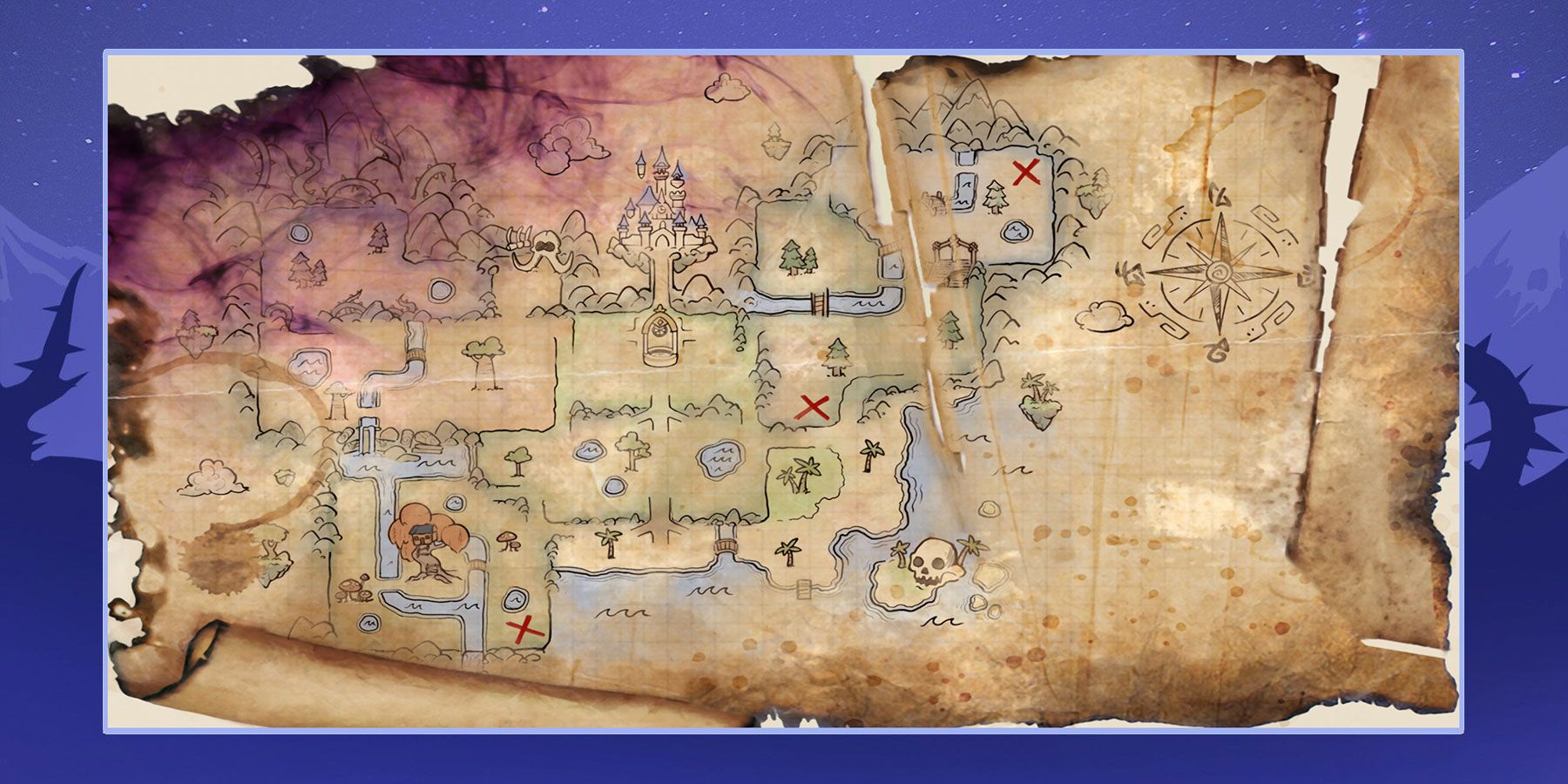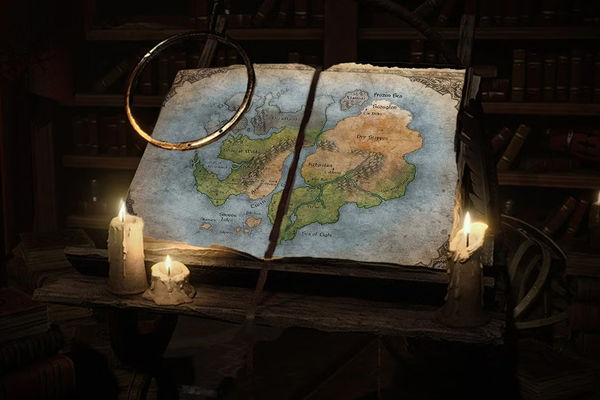Unveiling the Enigmatic Map Maker: A Deep Dive into a Timeless Riddle
Related Articles: Unveiling the Enigmatic Map Maker: A Deep Dive into a Timeless Riddle
Introduction
In this auspicious occasion, we are delighted to delve into the intriguing topic related to Unveiling the Enigmatic Map Maker: A Deep Dive into a Timeless Riddle. Let’s weave interesting information and offer fresh perspectives to the readers.
Table of Content
Unveiling the Enigmatic Map Maker: A Deep Dive into a Timeless Riddle

The riddle of the map maker, a classic conundrum that has captivated minds for centuries, presents a seemingly paradoxical situation. It compels us to consider the nature of self-reference, the limits of representation, and the fundamental question of who or what can truly be considered the ultimate creator. This seemingly simple riddle, often presented as a playful challenge, holds profound philosophical and logical implications, prompting us to delve into the very essence of knowledge and understanding.
The Essence of the Riddle:
The riddle typically poses the question: "Who made the map?" The answer, seemingly obvious, is "The map maker." However, the twist lies in the follow-up: "But who made the map maker?" This seemingly innocuous question opens a Pandora’s box of philosophical inquiry. If the map maker created the map, who created the map maker? Does this lead to an infinite regress, a never-ending chain of creators? Or does this necessitate a "first cause," a primordial creator outside the system?
Unraveling the Paradox:
The riddle of the map maker highlights the inherent limitations of representation. Maps, by their very nature, are simplifications of reality, abstractions that capture certain aspects of the world while omitting others. This inherent simplification raises the question: can a representation truly encompass its own creation?
The map maker, in a sense, is also a representation. They are a construct, a product of the same world they seek to map. Therefore, asking "who made the map maker?" is akin to asking "who made the representation of the representation?" This recursive questioning reveals the inherent circularity of the process, leading to the possibility of an infinite regress.
Exploring the Implications:
The riddle of the map maker, beyond its playful nature, offers a gateway to exploring profound philosophical concepts:
- The Nature of Self-Reference: The riddle highlights the paradoxical nature of self-reference. Can a system truly contain its own creation? This question extends beyond maps and map makers, touching upon the very nature of consciousness, language, and even the universe itself.
- The Limits of Representation: The riddle reminds us that all representations, whether maps, models, or theories, are inherently limited. They can only capture a certain aspect of reality, and inevitably, some information is lost or distorted in the process of representation.
- The Question of First Cause: The riddle prompts us to contemplate the concept of a "first cause," a primordial creator outside the system. This concept, while seemingly counterintuitive, is central to many religious and philosophical systems. The riddle, by forcing us to confront the limitations of representation, compels us to consider alternative explanations for the origin of things.
Beyond the Riddle: Applications and Insights
The riddle of the map maker, while seemingly simple, has far-reaching implications for various fields:
- Computer Science and Artificial Intelligence: The concept of self-reference is crucial in understanding the limitations of artificial intelligence and the potential for self-aware systems. The paradox of the map maker highlights the difficulty of creating truly self-aware machines.
- Linguistics and Semantics: The riddle touches upon the inherent limitations of language and the difficulty of accurately representing complex concepts. Understanding the limitations of language is crucial for effective communication and avoiding misinterpretations.
- Philosophy of Science: The riddle challenges the notion of objective truth and the possibility of absolute knowledge. It reminds us that all scientific models and theories are ultimately representations, subject to limitations and potential inaccuracies.
FAQs about the Riddle of the Map Maker:
-
Q: Does the riddle have a definitive answer?
- A: The riddle of the map maker is not designed to have a definitive answer. It is a thought experiment, a tool for exploring complex philosophical and logical concepts.
-
Q: Can the paradox be resolved?
- A: The paradox of the map maker is not a problem to be solved but a concept to be understood. Different philosophical perspectives offer different interpretations of the paradox, but there is no single, universally accepted resolution.
-
Q: What are some alternative interpretations of the riddle?
- A: Some interpretations suggest that the paradox can be resolved through a hierarchical approach, with a series of creators at different levels. Others propose that the paradox highlights the limitations of human understanding and the impossibility of fully comprehending the nature of creation.
Tips for Engaging with the Riddle of the Map Maker:
- Focus on the underlying concepts: The riddle is not merely a word game. Its value lies in the philosophical and logical concepts it raises.
- Consider different perspectives: Explore various philosophical and scientific viewpoints on the nature of creation, representation, and self-reference.
- Apply the concepts to other domains: The riddle’s implications extend beyond maps and map makers. Consider how the concepts of self-reference, representation, and first cause apply to other areas of knowledge and experience.
Conclusion:
The riddle of the map maker, while seemingly simple, offers a profound exploration of the nature of representation, the limits of self-reference, and the fundamental question of creation. It serves as a reminder that our understanding of the world is always incomplete, shaped by our own limitations and the inherent nature of representation. By engaging with this timeless riddle, we can gain a deeper appreciation for the complexity of knowledge, the limitations of our own understanding, and the enduring mystery of the universe.








Closure
Thus, we hope this article has provided valuable insights into Unveiling the Enigmatic Map Maker: A Deep Dive into a Timeless Riddle. We appreciate your attention to our article. See you in our next article!